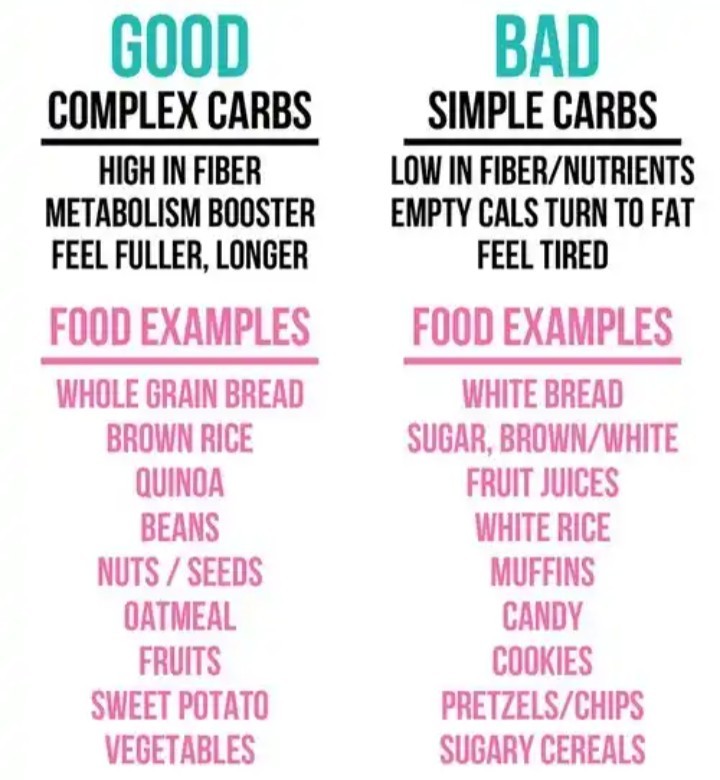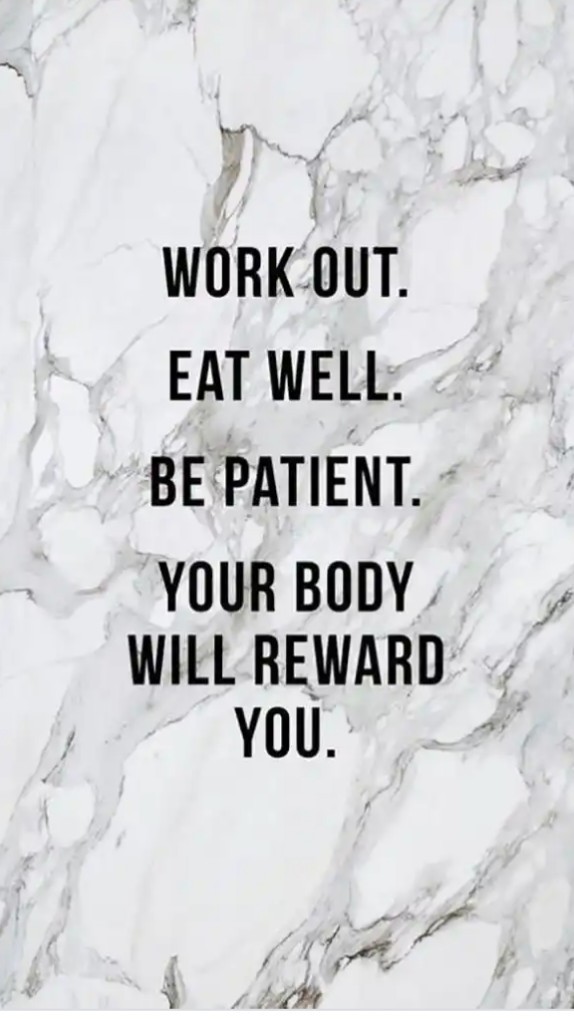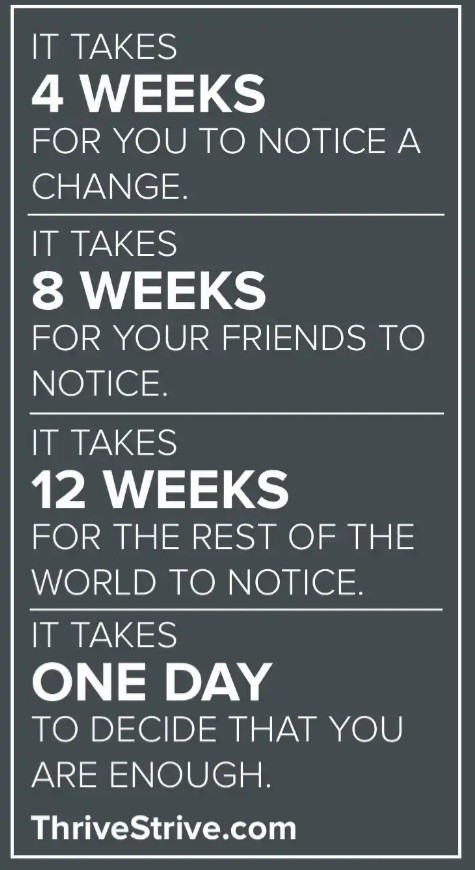[ad_1]
Losing weight, although common in the past, has become very popular these days as many people try to lose the “15 in quarantine” they gained during the 2020 pandemic.
Nevertheless, there is no doubt that with this new “trend” will come a lot of misconceptions and misinformation on the subject. So without further ado, here are ten weight loss myths you need to avoid.
1. A calorie is a calorie
Calories are units of energy, and energy is what our body uses to keep us alive. Food is measured in calories, so that means the more food we eat, the more energy we get. Eating more food than your body needs will cause the excess to be stored as “fat”, which will ultimately lead to weight gain.
On the other hand, eating less food than you need will cause the body to draw on its reserved fuel, i.e. stored fat for more energy, thus leading to fat loss. This is the basic calculation of weight loss. In simpler terms, eat less than you burn or burn more than you eat.
It’s important to watch your calorie intake while trying to lose weight, and it’s true that a calorie is a calorie in any type of food, but that’s just the calorie content of that food – not how much energy your body will get from it.
For example, eating 200 calories from protein and eating the same number of calories from processed foods will not give you the same amount of energy. This is because your body actually uses 20% of this protein to digest food, leaving you with only about 160 calories of energy at the end rather than the 200 you initially consumed.
Additionally, foods that contain protein and fiber take time to digest, which makes you feel full longer and therefore means you eat less overtime. That’s why many health and fitness experts suggest focusing more on eating the right diet and getting the macronutrients your body needs than counting calories.
The bottom line is that while the amount of food we eat while trying to lose weight is important, we should be more concerned about the QUALITY of our food, rather than AMOUNT.

2. Eating after 6 p.m. will make you fat
This is another weight loss myth that is very common. Many weight loss videos and blogs suggest not eating after a certain time to maximize results, and some people claim that eating after 6 or 7 p.m. can make you look bloated or fatter.
Although there may be a plausible explanation for this, it is not scientifically proven. Food will follow the natural process of digestion, regardless of the time of day. Perhaps many people discourage late night eating simply because many people tend to make poor food choices in the evening due to boredom and fatigue. However, there is no solid evidence that eating after age 6 or 7 will hinder your weight loss.

3. Eating breakfast will help you lose weight (OR eating smaller portions throughout the day will help you lose weight)
Many people have heard that skipping breakfast hinders weight loss, but this is scientifically inaccurate. Eating breakfast does not necessarily help your weight loss as we are told. The only reason many health practitioners recommend eating breakfast is that most people tend to overeat later in the day if they skip breakfast, not necessarily because it helps boost your metabolism. If you like to have breakfast then go here. But if you’re not hungry in the morning, it’s better to wait until you really want to eat.
Another similar weight loss myth is that it is better to eat smaller portions of meals throughout the day than three large meals. It may work for some people, but it’s not the ultimate way to improve weight loss. Food should be eaten when needed and when hungry, not limited to a specific diet or time.
Eat when you’re hungry and stop eating when you’re full – it’s as simple as that.
4. Carbohydrates are bad for you
It’s one of the trendy myths lately and sadly, a lot of people seem to embrace it. With food trends like “keto” and “no carbs, no sugar” becoming increasingly popular, carbs seem to have gotten a bad rap lately.
Carbs are NOT bad for you. In fact, carbohydrates are a very important part of our diet as they are the main and most preferable source of fuel for our body. Yes, there are some or rather many carbohydrates that are “unfriendly” for weight loss, such as processed carbohydrates and sugar. However, nutrient-dense carbs such as fiber-rich vegetables and whole grains are especially good for weight loss.

5. You need to train every day to lose weight
Nobody likes going to the gym every day, at least not when you’re new. In fact, indulging in excessive fitness activities as a beginner can actually do more harm than good, as it can lead to muscle injury, especially if you’re not doing the exercises correctly. Unfortunately, many people live with this false mindset that weight loss is all about the gym and exercise, which leads them to spend a lot more time working out than they should.
Weight loss mainly occurs in the kitchen. What you take into your body contributes to about 80% of your weight loss success; exercise is only a small percentage. Although very important, you don’t have to exercise every day to see weight loss results. Exercising 3-4 times a week and having a more active lifestyle can still have a positive effect on your weight loss.

6. “Losing weight just isn’t for me”
Although many people strive to achieve their fitness goals no matter what, some people have clearly concluded that weight loss just isn’t for them. They use factors like genes and metabolism to excuse themselves.
“I have a slow metabolism, I just can’t lose weight.” “Everyone in my family is tall so I guess it’s in my genes” are examples of what you may hear from someone who has just given up on their weight loss journey.
Although many factors can contribute to your inability to lose weight, weight loss is usually the product of a healthier lifestyle more than a hereditary factor.

7. Lifting weights will make you bulky (as a woman)
Many women are afraid to go to the gym and lift weights because they are afraid of building too much muscle and looking like a “man”. However, this is just a mistake.
Lifting weights builds muscle, but not in the way many think. If you do it right, lifting weights can help tone your body without making you look bulky. Building muscle also boosts your metabolism, which is good for weight loss.
8. Supplements work
Many weight loss companies want you to believe so you can continue to patronize their products. Using dietary supplements in the form of pills and drinks can help you lose weight, but it is only short-term and will cause side effects.
According to the FDA, some weight loss products have been linked to increased blood pressure, heart palpitations, strokes, seizures, and even death! It’s best to stick to eating better and being more active.

9. Fad diets don’t work
This contrasts with the previous myth, but I have a good explanation for this.
Although fad diets are not advised, it is not only because they are short-lived, but they come with many side effects, one of which is damaged metabolism. But the truth is, they work – but only if you’re looking for short-term results. If you want to lose weight and keep it off, you need to commit to a healthy way to achieve that goal.
That being said, I am in no way trying to encourage anyone to “go on a diet”. I’m just making an observation. If you want to learn more about this sub-topic, be sure to check out my post on Why Starvation is Bad for Weight Loss.
10. There is a “right” way to lose weight.
While there are many healthy remedies for weight loss, there is no “one size fits all” method that is guaranteed to work for everyone. Some people may see good results by embarking on low-carb diets and intermittent fasting, while others may not. A handful of people see huge weight loss changes just by making small adjustments to their lifestyle and some people may actually have to hit the gym and build muscle before they see any change.
Everyone is different, so what works for you may not work for another person. The best advice is to find what works for you that is sustainable and stick with it. The basis of your weight loss should be trying to create a lifestyle that will not only help you lose weight and keep it off, but will improve your overall health.

That’s all the myths I have for this article. If you think I missed any, feel free to share it in the comments. Do you have opinions contrary to the above? Also leave them in the comments.
